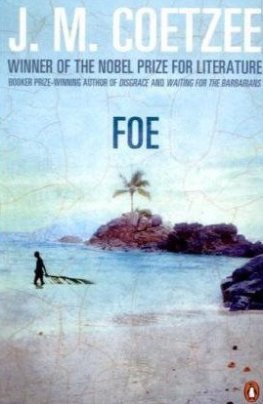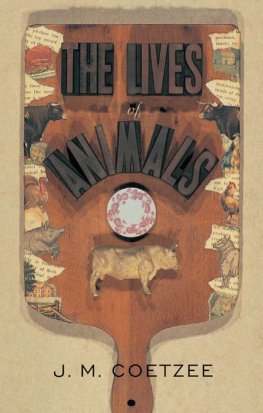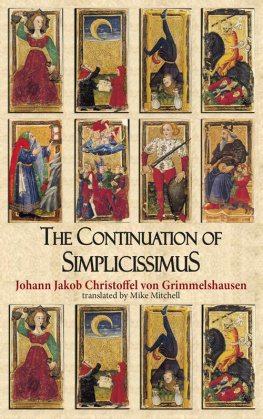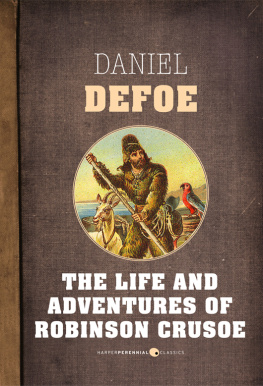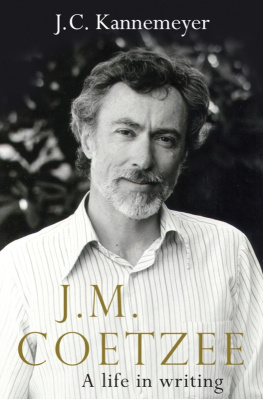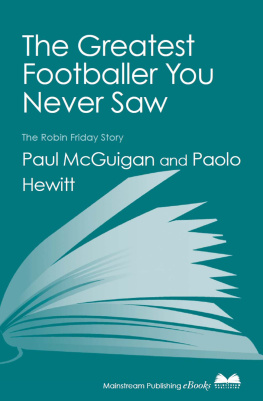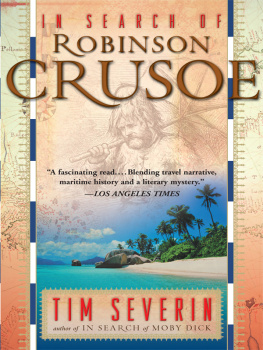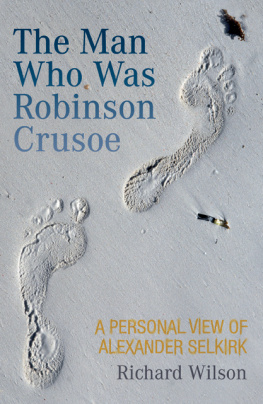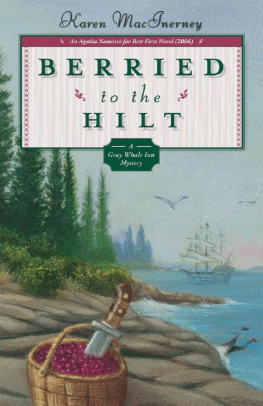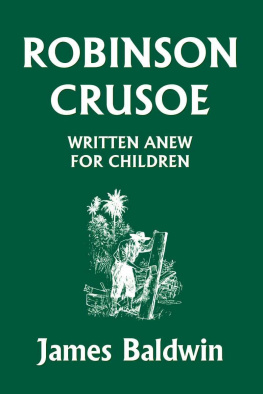At last I could row no further. My hands were blistered, my back was burned, my body ached. With a sigh, making barely a splash, I slipped overboard. With slow strokes, my long hair floating about me, like a flower of the sea, like an anemone, like a jellyfish of the kind you see in the waters of Brazil, I swam towards the strange island, for a while swimming as I had rowed, against the current, then all at once free of its grip, carried by the waves into the bay and on to the beach.
There I lay sprawled on the hot sand, my head filled with the orange blaze of the sun, my petticoat (which was all I had escaped with) baking dry upon me, tired, grateful, like all the saved.
A dark shadow fell upon me, not of a cloud but of a man with a dazzling halo about him. Castaway, I said with my thick dry tongue. I am cast away. I am all alone. And I held out my sore hands.
The man squatted down beside me. He was black: a Negro with a head of fuzzy wool, naked save for a pair of rough drawers. I lifted myself and studied the flat face, the small dull eyes, the broad nose, the thick lips, the skin not black but a dark grey, dry as if coated with dust. Agua, I said, trying Portuguese, and made a sign of drinking. He gave no reply, but regarded me as he would a seal or a porpoise thrown up by the waves, that would shortly expire and might then be cut up for food. At his side he had a spear. I have come to the wrong island, I thought, and let my head sink: I have come to an island of cannibals.
He reached out and with the back of his hand touched my arm. He is trying my flesh, I thought. But by and by my breathing slowed and I grew calmer. He smelled of fish, and of sheepswool on a hot day.
Then, since we could not stay thus forever, I sat up and again began to make motions of drinking. I had rowed all morning, I had not drunk since the night before, I no longer cared if he killed me afterwards so long as I had water.
The Negro rose and signed me to follow. He led me, stiff and sore, across sand-dunes and along a path ascending to the hilly interior of the island. But we had scarcely begun to climb when I felt a sharp hurt, and drew from my heel a long black-tipped thorn. Though I chafed it, the heel quickly swelled till I could not so much as hobble for the pain. The Negro offered me his back, indicating he would carry me. I hesitated to accept, for he was a slight fellow, shorter than I. But there was no help for it. So part-way skipping on one leg, part-way riding on his back, with my petticoat gathered up and my chin brushing his springy hair, I ascended the hillside, my fear of him abating in this strange backwards embrace. He took no heed where he set his feet, I noted, but crushed under his soles whole clusters of the thorns that had pierced my skin.
For readers reared on travellers tales, the words desert isle may conjure up a place of soft sands and shady trees where brooks run to quench the castaways thirst and ripe fruit falls into his hand, where no more is asked of him than to drowse the days away till a ship calls to fetch him home. But the island on which I was cast away was quite another place: a great rocky hill with a flat top, rising sharply from the sea on all sides except one, dotted with drab bushes that never flowered and never shed their leaves. Off the island grew beds of brown seaweed which, borne ashore by the waves, gave off a noisome stench and supported swarms of large pale fleas. There were ants scurrying everywhere, of the same kind we had in Bahia, and another pest, too, living in the dunes: a tiny insect that hid between your toes and ate its way into the flesh. Even Fridays hard skin was not proof against it: there were bleeding cracks in his feet, though he paid them no heed .. I saw no snakes, but lizards came out in the heat of the day to sun themselves, some small and agile, others large and clumsy, with blue ruffs about their gills which they would flare out when alarmed, and hiss, and glare. I caught one of them in a bag and tried to tame it, feeding it flies; but it would not take dead meat, so at last I set it free. Also there were apes (of whom I will say more later) and birds, birds everywhere: not only flocks of sparrows (or so I called them) that flitted all day chirruping from bush to bush, but on the cliffs above the sea great tribes of gulls and mews and gannets and cormorants, so that the rocks were white with their droppings. And in the sea porpoises and seals and fish of all kinds. So if the company of brutes had been enough for me, I might have lived most happily on my island. But who, accustomed to the fullness of human speech, can be content with caws and chirps and screeches, and the barking of seals, and the moan of the wind?
At last we came to the end of our climb and my porter halted to catch his breath. I found myself on a level plateau not far from some kind of encampment. On all sides stretched the shimmering sea, while to the east the ship that had brought me receded under full sail.
My one thought was for water. I did not care to what fate I was being borne so long as I could drink. At the gate of the encampment stood a man, darkskinned and heavily bearded. Agua, I said, making signs. He gestured to the Negro, and I saw I was talking to a European. Fala inglez? I asked, as I had learned to say in Brazil. He nodded. The Negro brought me a bowl of water. I drank, and he brought more. It was the best water I ever had.
The strangers eyes were green, his hair burnt to a straw colour. I judged he was sixty years of age. He wore (let me give my description of him all together) a jerkin, and drawers to below his knees, such as we see watermen wear on the Thames, and a tall cap rising in a cone, all of these made of pelts laced together, the fur outwards, and a stout pair of sandals. In his belt were a short stick and a knife. A mutineer, was my first thought: yet another mutineer, set ashore by a merciful captain, with one of the Negroes of the island, whom he has made his servant. My name is Susan Barton, I said. I was cast adrift by the crew of the ship yonder. They killed their master and did this to me. And all at once, though I had remained dry-eyed through all the insults done me on board ship and through the hours of despair when I was alone on the waves with the captain lying dead at my feet, a handspike jutting from his eye-socket, I fell to crying. I sat on the bare earth with my sore foot between my hands and rocked back and forth and sobbed like a child, while the stranger (who was of course the Cruso I told you of) gazed at me more as if I were a fish cast up by the waves than an unfortunate fellow-creature.
I have told you how Cruso was dressed; now let me tell you of his habitation.
In the centre of the flat hilltop was a cluster of rocks as high as a house. In the angle between two of these rocks Cruso had built himself a hut of poles and reeds, the reeds artfully thatched together and woven in and out of the poles with fronds to form roof and walls. A fence, with a gate that turned on leather hinges, completed an encampment in the shape of a triangle which Cruso termed his castle. Within the fence, protected from the apes, grew a patch of wild bitter lettuce. This lettuce, with fish and birds eggs, formed our sole diet on the island, as you shall hear.
In the hut Cruso had a narrow bed, which was all his furniture. The bare earth formed the floor. For his bed Friday had a mat under the eaves.
Drying my tears at last, I asked Cruso for a needle or some such instrument to remove the thorn from my foot. He brought out a needle made of a fishbone with a hole pierced through the broad end, by what means I do not know, and watched in silence while I took out the thorn.
Let me tell you my story, said I; for I am sure you are wondering who I am and how I come to be here.

